How To Travis Pick Guitar In 3 Simple Steps
by Simon Candy
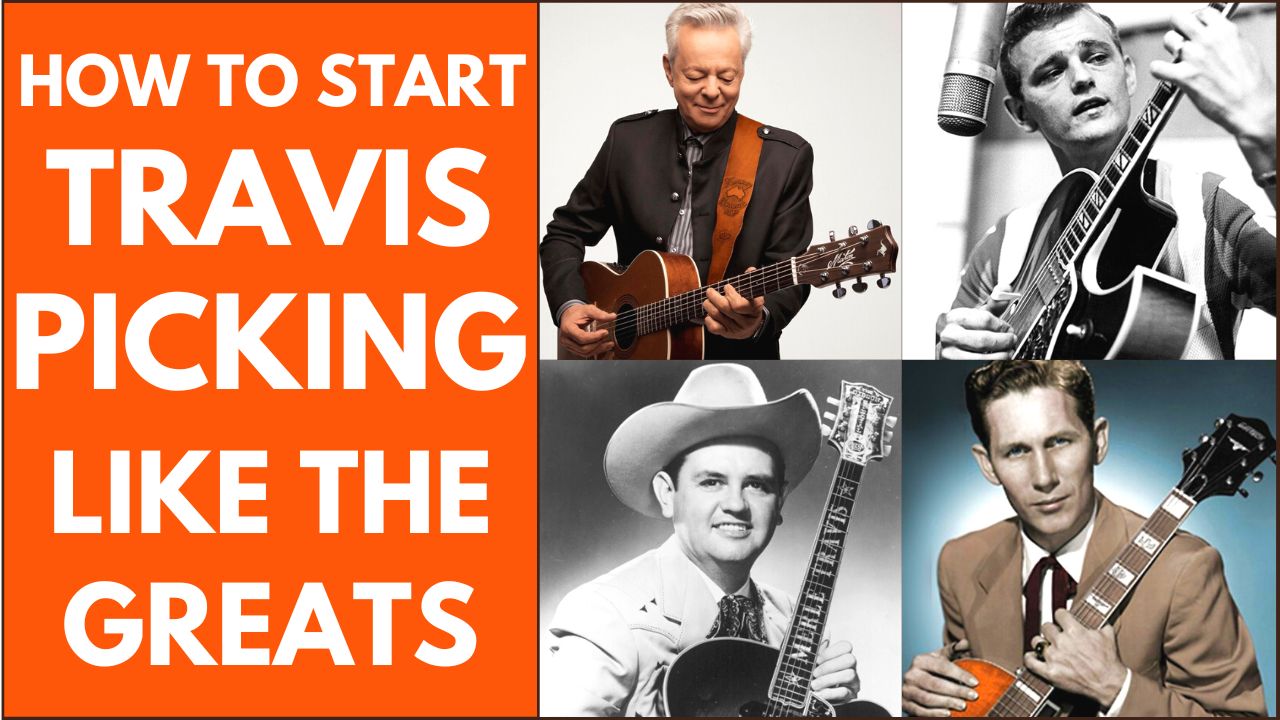 In this video, you learn how to travis pick on guitar.
In this video, you learn how to travis pick on guitar.
Travis picking is a syncopated fingerpicking technique that consists of the bass, rhythm, and melody parts of a song, all being played on one guitar, at the same time.
It derives its name from guitarist Merle Travis, who developed this cool and unique way of playing the guitar and has since become a big part of the style of such greats as Chet Atkins, Jerry Reed, and Tommy Emmanuel.
In this lesson, we break the style of Travis Picking down into 3 simple steps:
• Step 1: Bass
You learn the 4 common bass patterns used in Travis Picking and how to train your thumb to play these independently of what your fingers are doing on the higher strings
• Step 2: Harmony
You learn how to add harmony parts into the mix and how to play these independently of the bass that is happening at the same time on the lower strings.
• Step 3: Melody
Finally, we add melody to the harmony and bass parts culminating in the Travis Picking sound.
I also take you through a very famous travis picking tunes called “Freight Train” by Elizabeth Cotten.
This is a great introductory tune to the style of travis picking and will help reinforce the steps of the strategy covered in this lesson.
Watch the video below to learn more:
Travis Picking Breakdown
Step 1: Bass
The first component to work on with travis picking is the bass which always falls on the beat.
There are 4 main bass patterns found in travis picking.
Watch the video for a detailed breakdown of each.
• E Chord
First up we have the 6, 4, 6, 4 bass pattern on an E chord.
The numbers refer to the strings the bass falls on, and the order in which they fall:

A variation of this pattern is the 6, 4, 5, 4 pattern:

• A Chord
This pattern is known as the 5, 4, 5, 4 and suits chords whose root falls on the 5th string:

A variation of this pattern is the 5, 4, 6, 4 pattern:

• B7 Chord
Here is the 5, 4, 5, 4 pattern applied to a B7 chord:

A variation of this pattern is the 5, 4, 6, 4 pattern:

Step 2: Harmony
Next, we add the harmony part to the bass.
The following exercises gradually build to help you create nice syncopated harmony parts against the steady groove of the bass.
Watch the video for a detailed breakdown of adding harmony parts to the bass.
Plucking Notes Together
We begin by plucking the notes of the chord together while maintaining the steady bass on the beat.
• E Chord
Pluck the E chord on the first beat of the bar as you play the 6, 4, 6, 4 bass pattern:

• A Chord
Here is the same thing, only plucking the A chord now:

• B7 Chord
And once more on a B7 chord:

• E Chord
Next, we add a hit of the chord on the and (+) of the second beat:

• A Chord
Here is the same thing only now plucking the A chord:

• B7 Chord
And once more on a B7 chord:

Arpeggiation
Next, we arpeggiate the chord while maintaining the steady groove of the bass on the beat.
• E Chord
Here is the E chord arpeggiated on the beat while playing the bass a 6, 4, 6, 4 bass pattern:

• A Chord
Here is the same thing only applied to an A open chord:

• B7 Chord
And once more to a B7 chord:

• E Chord
Now we syncopate the arpeggio by playing it off the beat in the second bar:

• A Chord
Here we are doing the same on the A chord:

• B7 Chord
And once more on the B7 chord:

Step 3: Melody
The third step of our three step strategy is to add melody to the bass and harmony parts.
Watch the video to get a detailed breakdown of adding melody to the bass and harmony parts.
• E Blues
The following is a travis picked 12 bar blues in E complete with melody.
To begin, it is very important to play the melody on the beat:
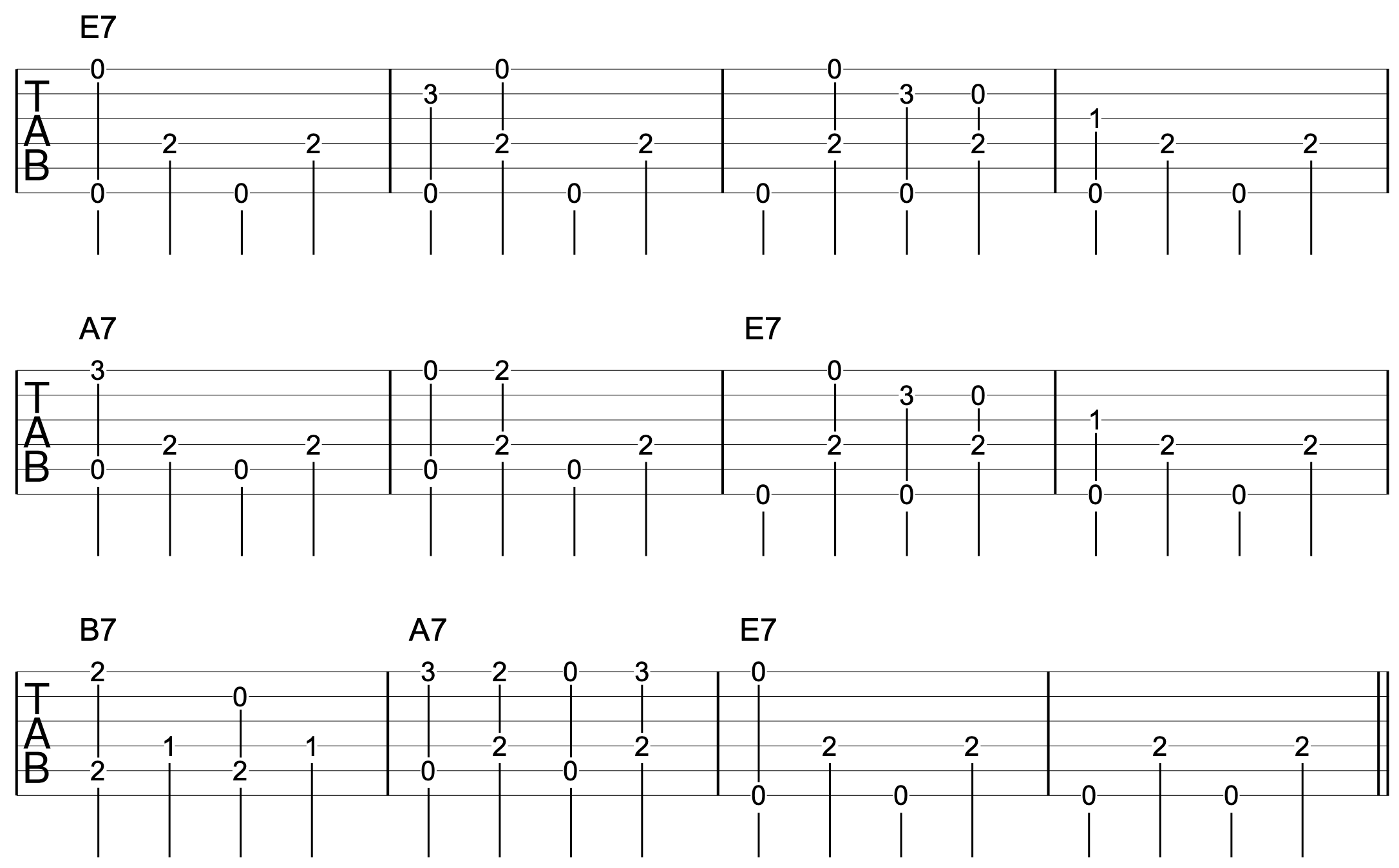
Next, after learning the example above, it will be much easier to then syncopate the melody making it sound more interesting and more musical:
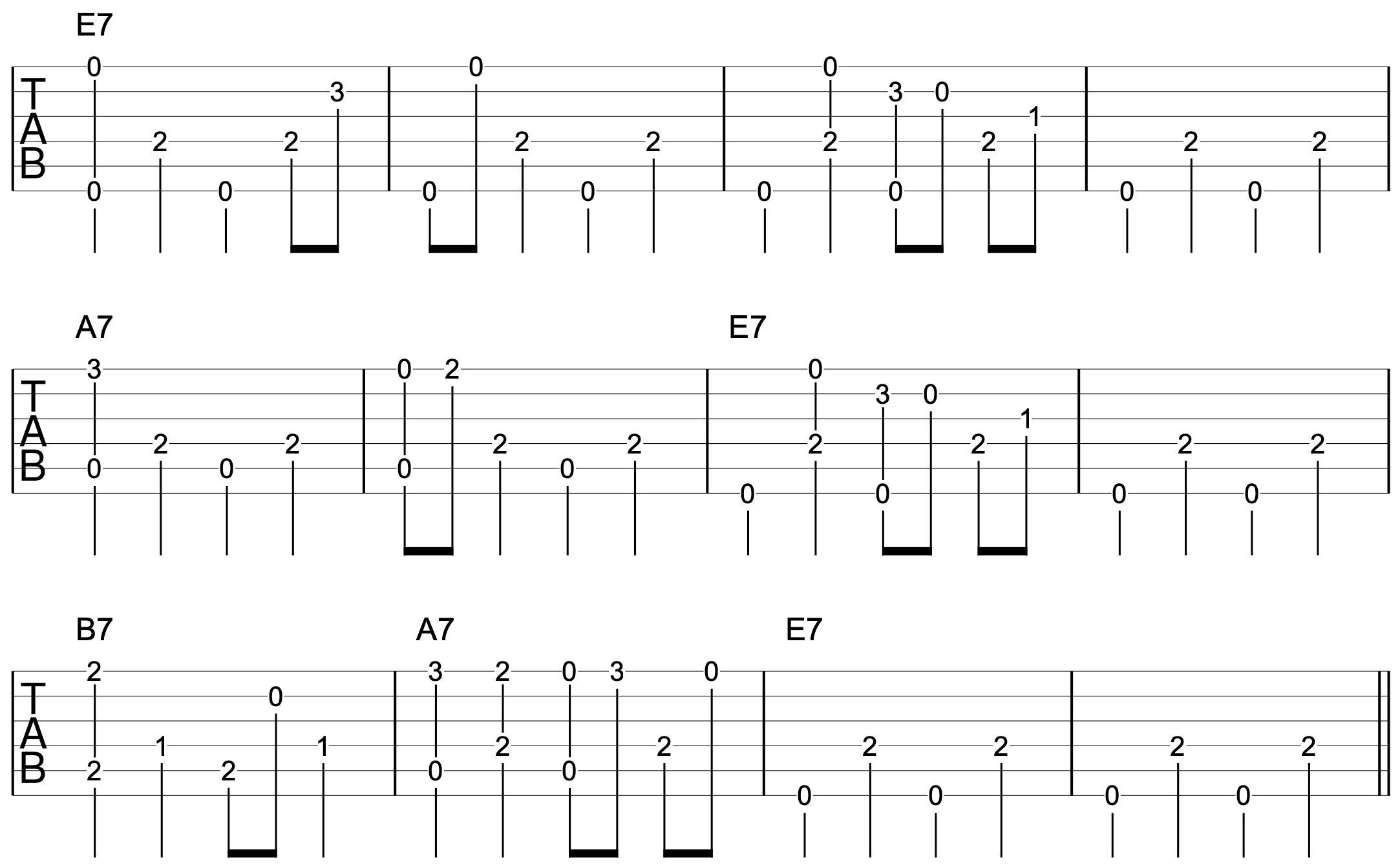
• Freight Train
The following is a very famous Travis Picking tune called “Freight Train” by Elizabeth Cotten.
As we did with the Blues above, first, play the tune without syncopating the melody like so:
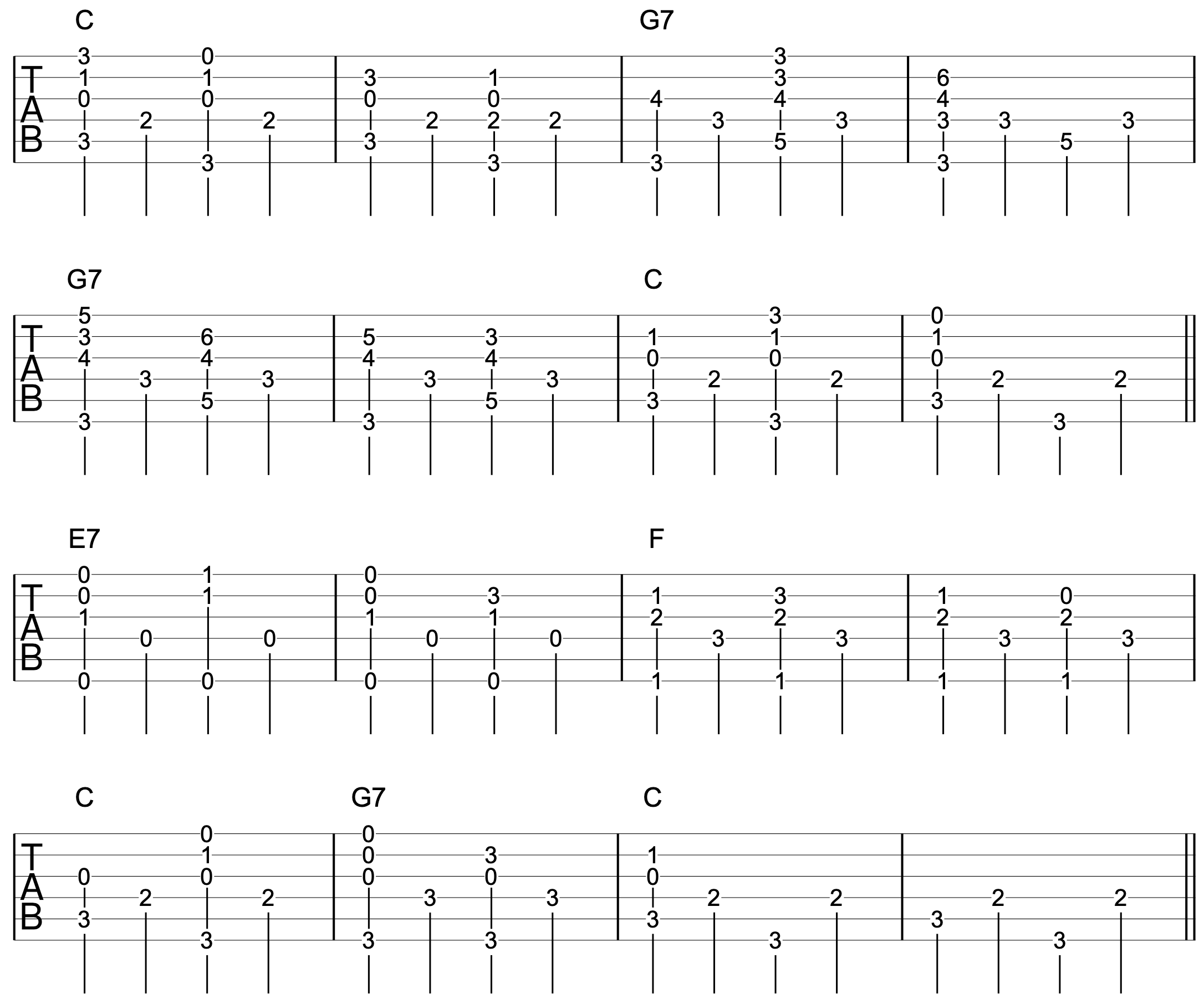
Once you have the non syncopated version down, it will be so much easier to then syncopate it like so:
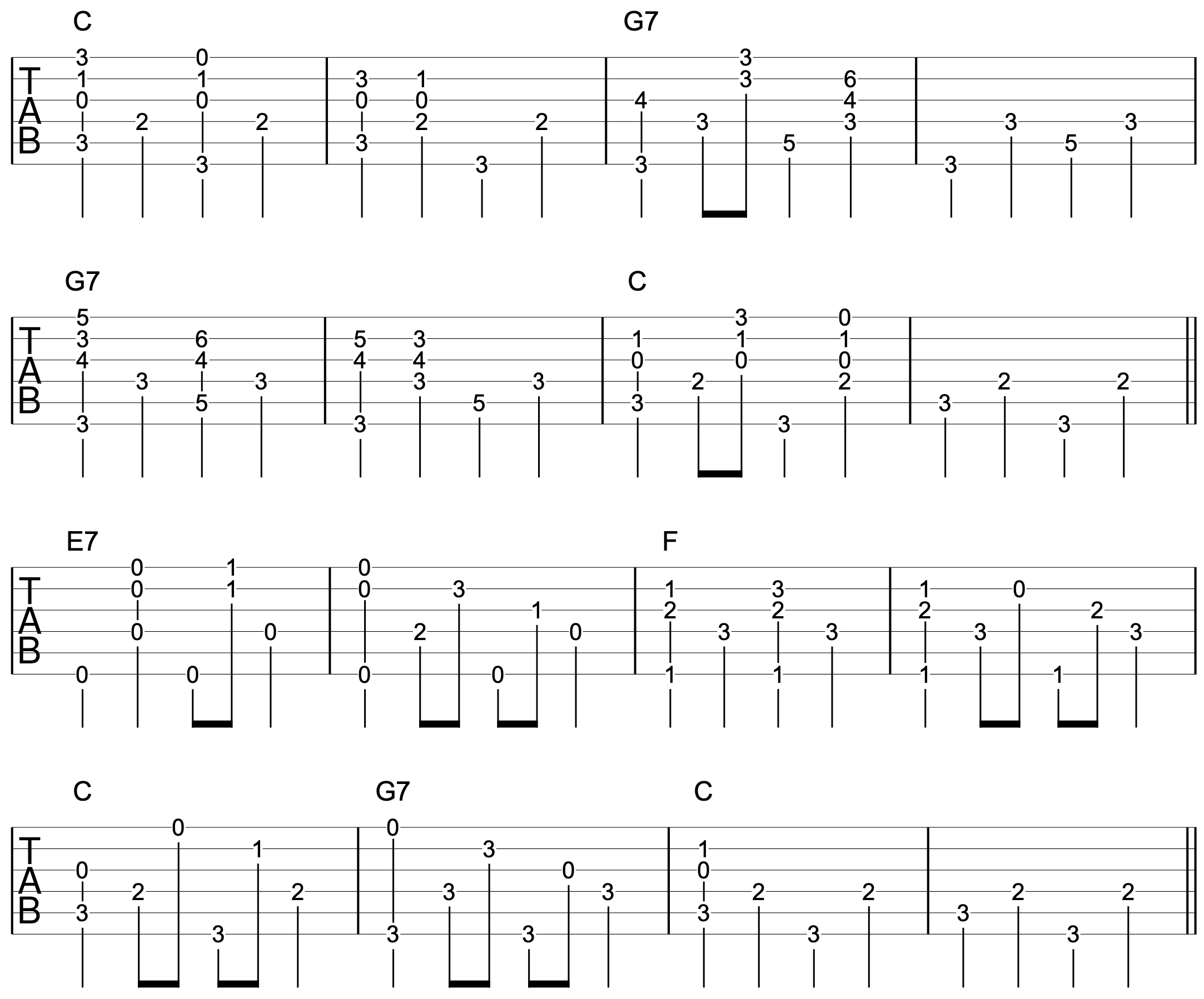
Learn how to fingerpick guitar with my online fingerstyle guitar lesson program